Children attending schools affiliated with the GENKI program watch overseas video content and play games on their smartphones and TVs at home, even though they are not blessed with a living environment. What kind of influence do children receive through such entertainment?
Established in 1974, BLS Obat Primary School, one of the partner schools of the GENKI program, is located in the Mirpur district of the capital Dhaka. Since most of the 510 students in the school live in nearby slums, the school provides free classes to poor children.
Slums are densely populated, with seven or eight people living in one room, and multiple households sharing toilets. In addition, security is poor, and residents are sometimes caught up in discrimination and violence. Children who live in such a harsh environment seem to have their own ways to enjoy themselves.
The use of the Internet began in Bangladesh in the 1990s, and with the spread of smartphones in the 2010s, overseas entertainment that can be accessed from video posting sites and SNS has become a familiar presence for people living in Bangladesh. Children in slums do not have enough places to play after school, so they spend their leisure time watching foreign content on the Internet and TV and playing games.

In fact, American and Japanese cartoons are very popular among children in Bangladesh. Children living in slums gather in homes with TVs and watch them together. Interesting stories, unique characters, music and colors will captivate children. Some children have school bags and toys with their favorite cartoons drawn on them.

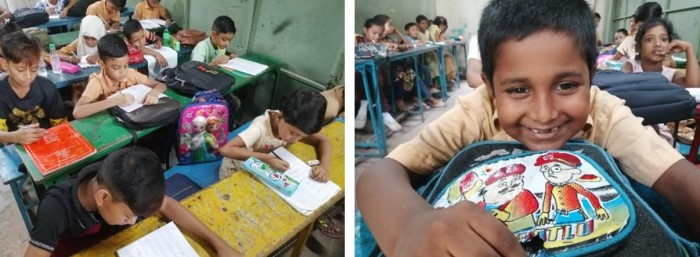
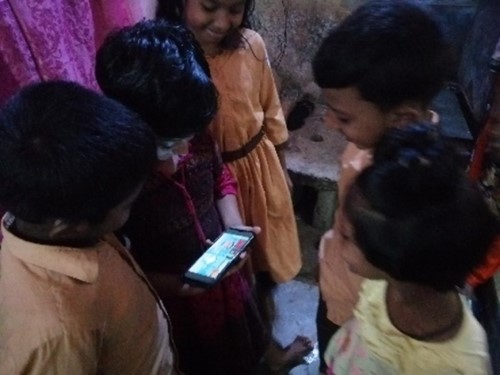
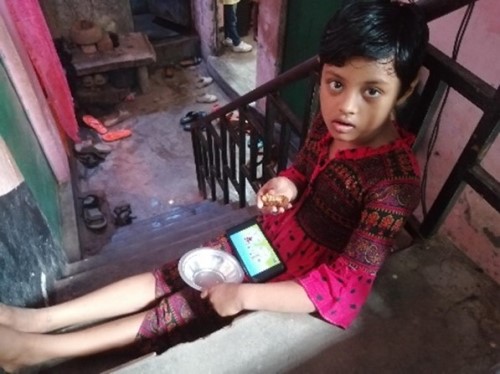
8th grade Lana’s favorite is Japanese anime. He admires the characters in the latest popular works.
“I know that animation is not real, but I want to be a hero in the future and help people in various places,” Lana says.
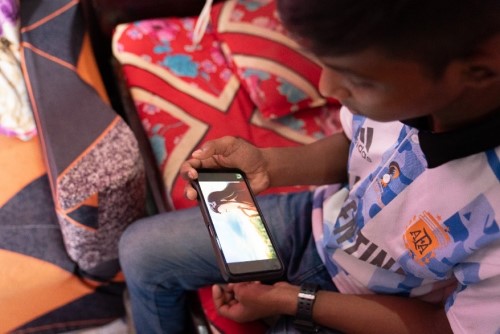
Foreign movies are also popular in Bangladesh. In particular, Indian (Bollywood) films portray family ties and social issues that are common in Bangladesh, so they resonate with people.
American music is also popular with children. Shahir, who sings rap in Bengali himself, happily says, “Listening to Western music improves my English listening skills.” Cross-cultural entertainment that children can experience in their free time and between studies is changing the daily lives of children.

Bangladeshi people also love sports. Especially in soccer, when international competitions such as the World Cup are held, the whole country gets excited. Children who go to schools with playgrounds often play in the playgrounds after lunch or after school.
“I love soccer. I admire not only the performance of star players, but also their behavior.

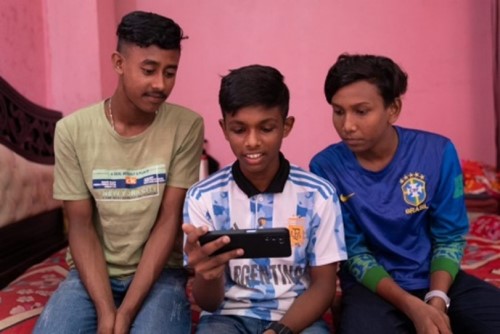
Children in the slums have limited places to play, but they are satisfied with entertainment. Increased TV and Internet viewing may reduce children’s activity levels. However, entertainment also has the advantage of creating new ideas and values for children.
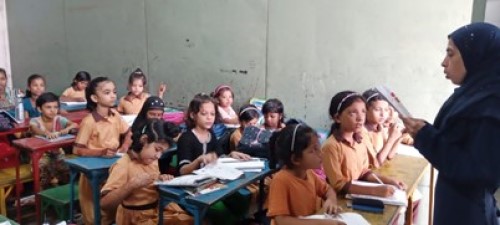
Teacher Tammana of the school said about entertainment and children.
“Children incorporate Western culture into their clothing and hairstyles. It is not necessarily harmful to learn about foreign cultures through entertainment.Students actively color their lifestyles. will open up future possibilities for our children.”
The GENKI program will continue to support children.